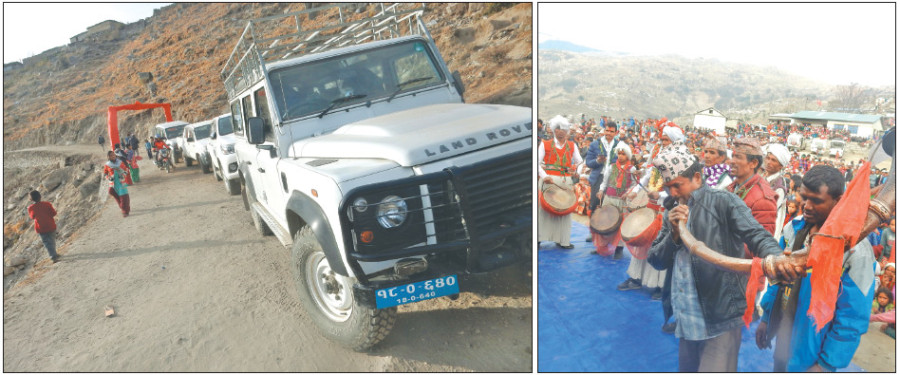Money
Motorable road reaches remote Kalikot villages
Remote villages in Kalikot district in western Nepal have been connected with the Karnali Corridor and the national highway network following the completion of the Sannigad-Sipkhana road.
Tula Ram Pandey
Remote villages in Kalikot district in western Nepal have been connected with the Karnali Corridor and the national highway network following the completion of the Sannigad-Sipkhana road.
The 18-km Sannigad-Syuna-Sipkhana road leads to the 196-km Karnali Corridor.
The Sannigad road is expected to be a boon for the district as it will provide direct motorable access to market. Studies show that the Karnali region has been constantly food insecure due to lack of market access and transportation.
One of the key contributors to the high food prices is steep freight rates in the remote hill and mountain districts which have the lowest per capita income in the country.
Following the construction of the road, several small motor vehicles have reached Raskot, a section of the Sannigad-Sipkhana road, for the first time. Local residents organized a programme to greet the first automobiles to reach the village.
The Sannigad-Sipkhana road has provided road connectivity to more than a dozen villages like Baddala, Gorkhali, Pipalmuda, Ranawada, Bijaypur, Kaligau, Sipkhana and Serachaur. The road is part of a six-year rural access programme funded by the UK Department for International Development (DFID).
Before the road was built, locals had to walk over steep rocky slopes for hours. However, things have changed, thanks to the rural road network.
Parilal Neupane, 64, a local resident of Raskot 1, said that they would not have to walk over hills carrying sacks on their backs anymore. The villagers presented large cardamom as gifts to the travellers on the first automobiles to reach Raskot.
“Now we can get good prices for our agricultural produce,” he said. Due to lack of road connectivity, farmers were unable to send their harvests to market. The district produces high value crops like large cardamom.
Dev Jung Shahi, a local leader of the Rastriya Jana Morcha Party, said that the Sannigad-Sipkhana road had become a model for the development of the district.
Locals also welcomed DFID head Rurik Marsden and Ananda Raj Dhakal, joint secretary of the Ministry of Federal Affairs and Local Development, among others.
The Sannigad-Syuna-Sipkhana road was built at a cost of Rs343 million, including Rs299.6 million in wages for the construction workers.
The project got off to a slow start due to a dispute over land acquisition. Work gained pace following a public hearing and declaration of equal wages for the workers.




 20.12°C Kathmandu
20.12°C Kathmandu













